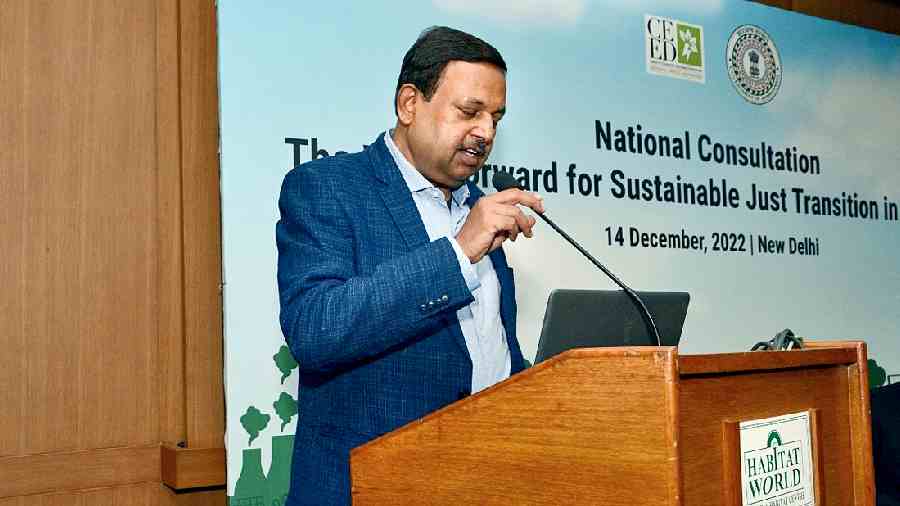The Jharkhand government’s task force for sustainable just transition reached out to stakeholders to receive their expertise for the just transition process in the state by hosting a national consultation in Delhi on Wednesday.
At the conference hosted in association with technical partner, the Centre for Environment and Energy Development (CEED) at the India Habitat Centre retired IFS A.K. Rastogi, who is also chairman of the task force on Sustainable Just Transition said, “We believe in collaborative efforts through a multi-stakeholder approach by engaging the reputed institutions in defining the key priority areas for us.
“As a part of the consultative process, we have decided on six major thematic areas such as energy transition, coal transition, sustainable mobility, livelihood transition, capacity development, and low carbon transition to further work upon.”
Rastogi, who headed the forest department in Jharkhand before retiring earlier this year, further said: “We will onboard key collaborators through their letter of intent to harness their expertise, learnings and support in the preparation of a visionary roadmap on realising the sustainable and just transition in Jharkhand.”
He also informed that one of the key objectives of the conference was to receive inputs from stakeholders on the just transition process in the state.
Notably, the government of Jharkhand constituted a task force in November in light of the Centre’s objective of achieving net-zero emission target by 2070 and 500GW non-fossil fuel by 2030.
The main objective of the task force is to study the effects of transition from fossil fuel-based to non-fossil based ecosystem, assess the magnitude of the nature of accelerated phase-out of coal mines/industries and its impact on the economy, workers and communities, identify opportunities in green sectors and sustainable financing, and further recommend policy intervention at cross-sectoral level to move towards low carbon pathways and green economy.
CEED CEO Ramapati Kumar in his address informed, “Jharkhand is the first state in the country to set a policy direction through the task force to work towards a net-zero scenario and sustainable development goals. As a technical and knowledge partner, CEED is providing hand-holding support to the task force in its regular operational activities and facilitating the process of creating an enabling policy framework and implementation roadmap towards non-fossil-based ecosystem transition.”
He further welcomed all prospective collaborators to be part of this consultative and inclusive process in facilitating the just transition in the state.
The meeting was attended by the representatives of the International Energy Agency, United Nations Development Program (UNDP), IIT-Kanpur, USAID, World Bank, Centre for Policy Research, IRADe, World Resource Institute, iFOREST, Council on Environment, Energy and Water, India Climate Collaborative, etc.
The representatives expressed their support and commitment to help in developing the low carbon development roadmap for Jharkhand.











